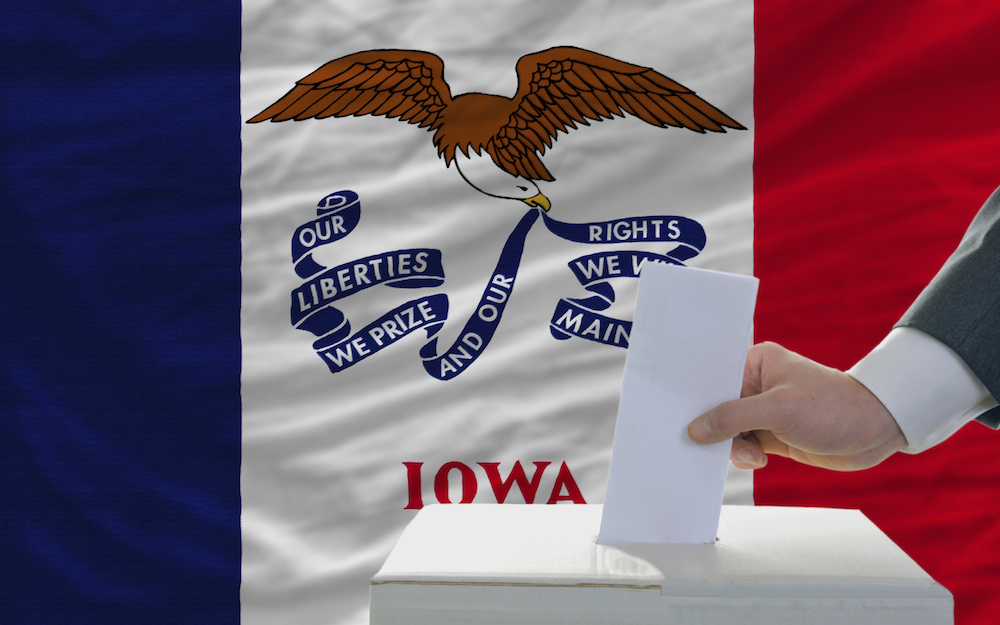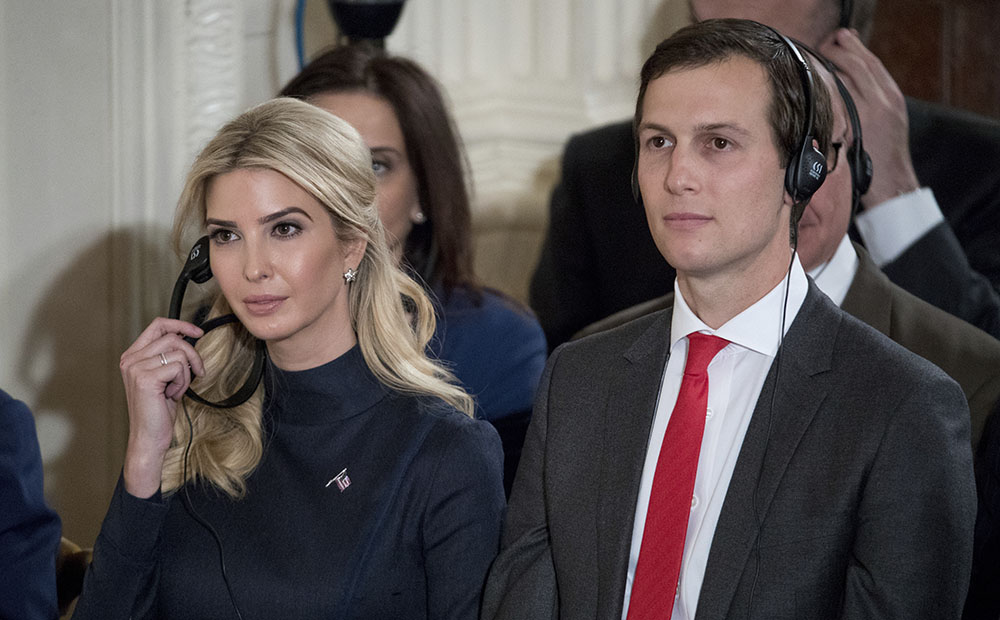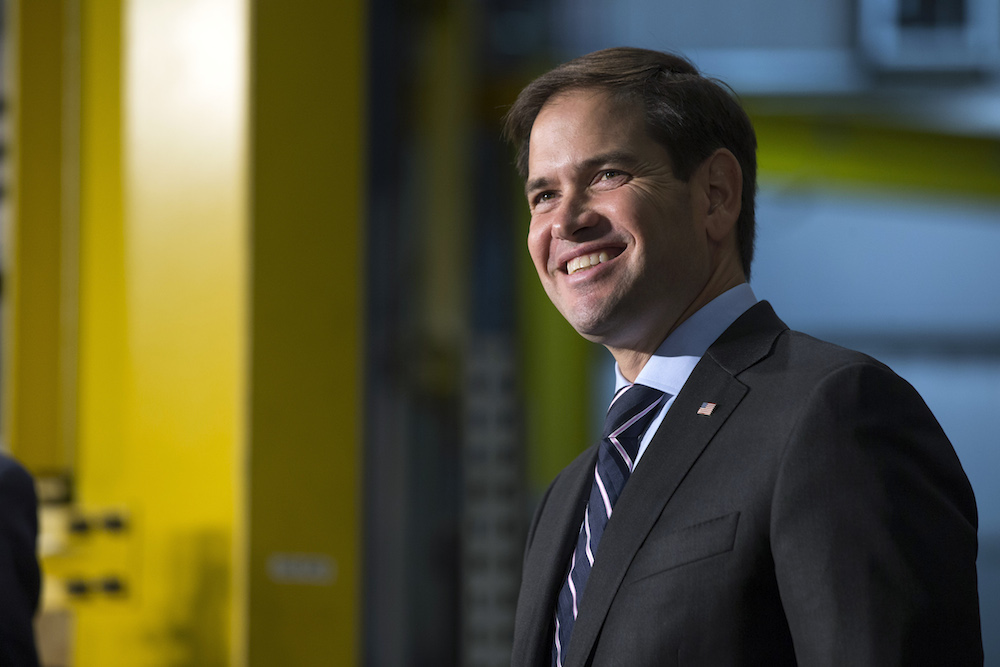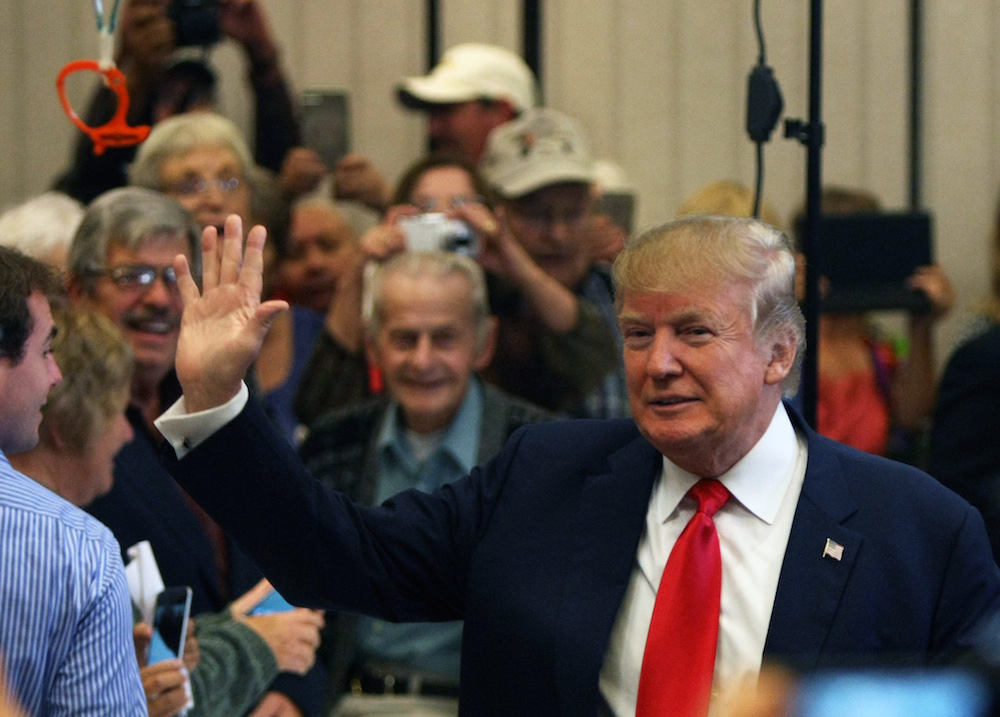Here’s a number that terrifies front-runners and encourages also-rans at this stage of the Republican presidential race: Seventy-eight percent of Iowa caucus-goers say they haven’t yet made up their minds. Even if they tell pollsters they support a candidate now, they freely admit they might switch to someone else later.
Pollsters have found similar results in New Hampshire, South Carolina and the states that follow in the GOP primary race.
Campaign strategists also know that November, December and January were times of extreme volatility in the 2008 and 2012 Republican primary contests. Both times, the leader going into November was not the leader who emerged in January. And that means almost everyone in the crowded GOP field is still alive, for now, at least. As long as a candidate has enough money for gas, a room at Motel 6 and a loyal aide or two, he can keep at it and hope for a breakthrough.
Still, some have a steeper path than others. At this point in the race, it looks like the “undercard” candidates, named for their exclusion from the prime-time GOP debates, are probably on a path to nowhere. George Pataki, Lindsey Graham, Rick Santorum and Bobby Jindal are very able men, but none has the prospect of getting much traction.

Seventy-eight percent of Iowa caucus-goers say they haven’t yet made up their minds. Pollsters have found similar results in New Hampshire, South Carolina and the states that follow in the GOP primary race. (AP photo)
In addition, there are a few of the prime-time candidates, Rand Paul and John Kasich in particular, who don’t seem to be getting traction either. So to be generous, say there are eight contenders left: Donald Trump, Ben Carson, Marco Rubio, Jeb Bush, Ted Cruz, Carly Fiorina, Mike Huckabee and Chris Christie.
With 90 days to go until the Iowa caucuses and one year to go until the general election, here’s a look at how each of the top eight GOP candidates might get ahead, starting from the bottom:
No. 8: Christie. It’s amazing Christie is even alive after the world’s longest near-death experience called Bridgegate. But Christie has persevered, putting all his bets on New Hampshire. He has spent all or part of 48 days there in the 2016 cycle, more than any other GOP candidate. And after a strong debate performance in Boulder on Wednesday, Christie definitely has a pulse. Aides say he will use his boost to keep pushing entitlement reform. “It’s the courage to take on the politically toxic issues that are part of the reason why people are so frustrated with Washington,” one of them said.
No. 7: Huckabee. In August, Huckabee was in fourth place in the RealClearPolitics average of polls. Now, he’s in seventh. But Huckabee is setting himself apart from the field, taking the opposite approach from Christie and much of the rest of the GOP by pledging not to touch entitlements. He’s also shown some creativity in advocating a disease-based approach to saving Medicare: Find cures or reduce the incidence of diabetes, heart disease, cancer and Alzheimer’s that takes a huge bite out of care costs.
Plus, Huckabee, who won the 2008 Iowa caucuses, believes he can do well there again, and then in South Carolina and the so-called SEC primaries. “He’s a southerner,” notes an aide. “He’s got broad appeal in the South, and that’s where the calendar starts after the first states.”

An unexpected problem is facing Fiorina. A polished performer, she shot up in the polls after the first GOP debate in August. Then she began to slide. She needs to show the world she has a plan to get from here to the nomination. (AP Photo)
No. 6: Fiorina. An unexpected problem is facing Fiorina. A polished performer, she shot up in the polls after the first GOP debate in August. Then she began to slide. Then she shot up in the polls after the second debate in September. Then she began to slide. Now, she’s in sixth place nationally without the momentum many expected her to have after those two breakout performances. And then she gave at best a middling performance in the Boulder debate, leading more than a few insiders to wonder how she can regain the upward path. She needs to show the world she has a plan to get from here to the nomination.
No. 5: Cruz. Cruz is a happy candidate. Eighth in the field back in July, he has slowly climbed to fifth, and sometimes fourth. He thrilled conservatives with a perfectly-wrought attack on media bias at the debate in Boulder. He raised $12.2 million in the third quarter, from a healthy mix of small and large donors. And he is making inroads with not just religious conservatives, but national security conservatives and libertarians.
“We’re doing everything that we said we were going to do at the beginning of this campaign,” a Cruz aide said. “We said we were going to put together a well-structured organization that didn’t grow too big and stayed within its budget. We said we would run a message campaign that said what to expect from a Cruz presidency. We said we would aggressively raise money and turn some heads with the type of folks we could bring to the table. We’ve done that and we’re going to continue.”
No. 4: Bush. Where to start with Bush? Things are just getting worse and worse for the one-time front-runner. He has stumbled on his family’s legacy. He has struggled to declare himself his own man. He has proved a lackluster campaigner. He has fumed as Trump, and then others, overtook him. He has bet the bank on a late-primary strategy that will be irrelevant if he loses the early contests. And finally, he has performed poorly in high-profile debates.
After his disastrous turn in Boulder, campaign manager Danny Diaz worked diligently to claim Bush is still in the game. “He needs to continue to talk about the best record of accomplishment,” Diaz said. “This hasn’t been decided. Forty-six percent of New Hampshire voters decide in the last week. Stay with us, brother.”

Seventh in the polls over the summer, Rubio has now climbed to third, which is a nice spot for a strategy team that didn’t want to replicate the experience of past candidates who rocketed to the top only to fall just as quickly. (AP Photo)
No. 3: Rubio. One person who benefits from each Bush stumble is Rubio. If there is a race to win the establishment “lane” in the primary process, Rubio has now clearly overtaken Bush as the favorite. He had an anemic fundraising quarter, $5.7 million, less than half of Bush’s, but insiders say Rubio’s money haul has picked up considerably in recent days.
With Cruz, he is the best onstage performer in the field. Seventh in the polls over the summer, he has now climbed to third, which is a nice spot for a strategy team that didn’t want to replicate the experience of past candidates who rocketed to the top only to fall just as quickly. “We want to be first in February,” said a Rubio aide, reflecting the campaign’s don’t-peak-too-soon strategy. “We have a long way to go.”
No. 2: Carson. Now virtually the co-leader of the national race, Carson’s rise has left virtually every other competitor mystified. How does he do it? The retired brain surgeon’s mix of affability, sincerity, soft-spokenness and plain speaking has captivated a large part of the Republican base, and brought in a field-leading $20.8 million in donations in the third quarter. And all for a man with the simplest and most disarming plan in politics.
Before the Boulder debate, Carson was asked his strategy for the night. “My strategy will be to be me,” he said. Asked how he plans to maintain his position in the polls, he answered, “All I have to do is be myself and tell the truth.” Rival campaigns believe Carson will fade when voters see that, for all his achievements, he is quite thin on policy knowledge. But Carson keeps surprising them.
No. 1: Trump. Almost as soon as Donald Trump hit the top of the polls this summer, he realized that the start of voting in February was so far away that he could not just keep doing the same thing over and over again and expect to stay on top. His advisers planned a schedule of newsmaking events to take him through the next few months, such as a big rally in an unexpected place, a policy rollout that sets off controversy, an eye-catching event like appearing on “Saturday Night Live,” all to keep the public’s interest as the weeks passed.

The main question is whether Trump will finally open his checkbook and spend big dollars, his own money, for political ads. (AP Photo)
Behind the scenes, Trump continues to build a solid political operation in the early states. While the boss makes news, his team is laying the foundation for what could become a formidable ground game. Like Carson, Trump’s rivals expect him to fade; many believe they see the beginning of that in Carson’s eclipse of Trump in Iowa. Whatever is happening, the main question many strategists have is whether Trump will finally open his checkbook and spend big dollars, his own money, for political ads. He promises that he will, but so far hasn’t. If he does start spending, everyone will know that Trump is all in for the whole distance.
Eight candidates, eight strategies. Some insiders will tell you that there are really only two, or perhaps three, real contenders. That will be true soon enough. For the moment, though, the GOP race is a multi-dimensional game that no one has been able to master.
